#decentralized applications
Link
Since the last decade, blockchain has been a big deal on the Internet, and at its core is Defi (decentralized finance). The fact that you do not need traditional financial systems to perform transactions in split seconds is a perfect description of having control over your finances. Little wonder DeFi investment exceeded $100 billion as of 2021.
But here lies the challenge. As the concept of Defi is going mainstream, new applications keep showing up. Unfortunately, they all allow you to borrow, lend, trade, and invest your crypto assets, making it difficult to make a choice. But, to help you tap into the fastest-growing sector in the crypto-verse, we've revealed the 7 best decentralized finance applications in 2022. By the end of the road, you'll be able to make an informed decision about a suitable DeFi app to use.
#dapp#DeFi#Crypto#Blockchain#Decentralized finance#dApps#decentralized applications#ETH#BNB#BTC#Bitcoin
3 notes
·
View notes
Text
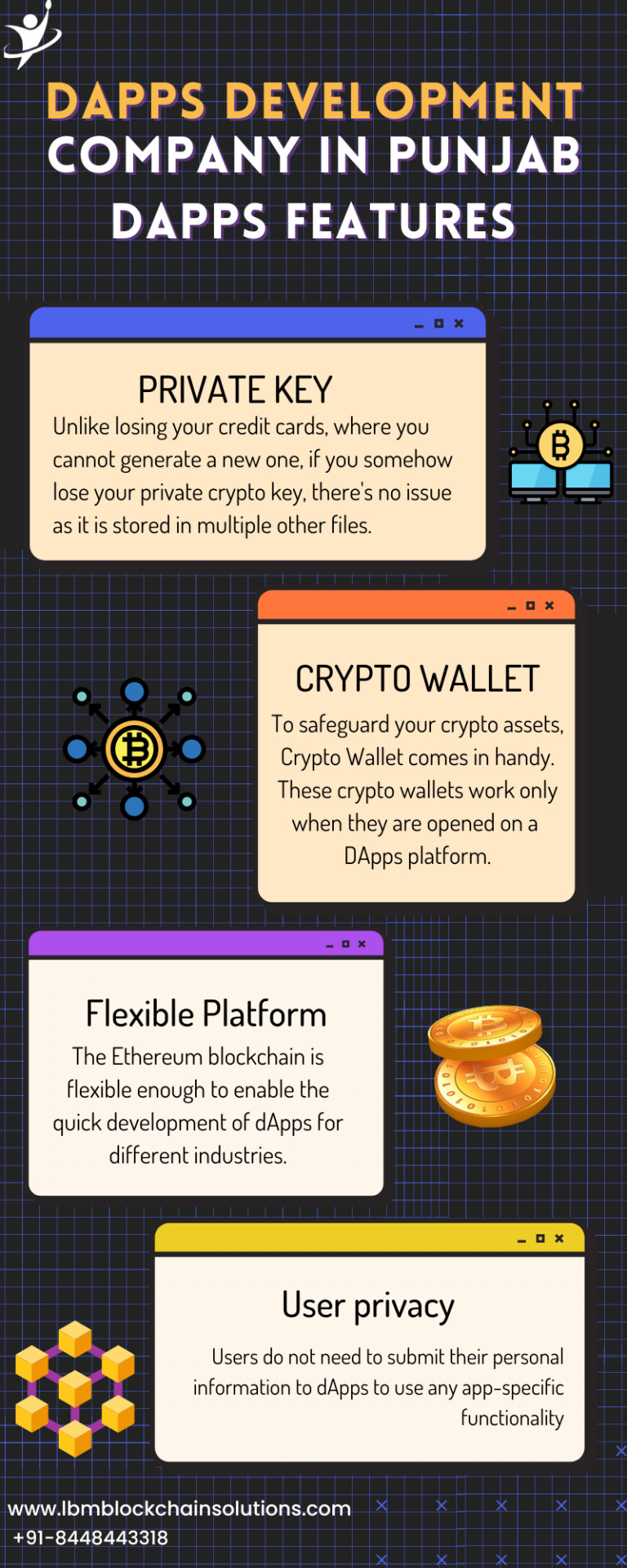
2 notes
·
View notes
Text
Breaking Down Blockchain: How Cryptocurrency Technology is Changing Finance
Blockchain technology has emerged as a disruptive force in the world of finance, revolutionizing traditional banking systems and paving the way for decentralized digital currencies such as Bitcoin and Ethereum. By providing secure, transparent, and immutable transaction ledgers, blockchain has the potential to transform the way we transact, invest, and store value. In this blog post, we’ll break…
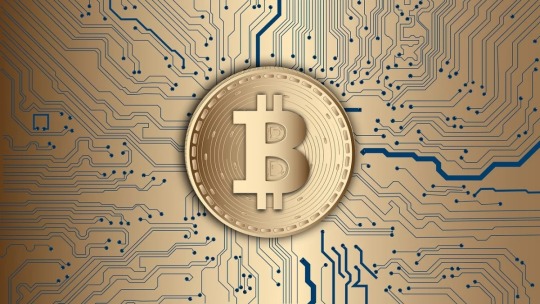
View On WordPress
#Bitcoin#Blockchain#consensus mechanisms#cross-border payments#cryptocurrency#DApps#decentralized applications#decentralized finance#decentralized ledger#digital currencies#Ethereum#Finance#financial technology#remittances#smart contracts#tokenization
0 notes
Text
#CrossChain KYC Bridge#CCKB (CrossChain KYC Bridge)#Web3 platforms#KYC verification#Decentralized Applications
0 notes
Text
Associative: Your Partner for Building Powerful Decentralized Applications (dApps)
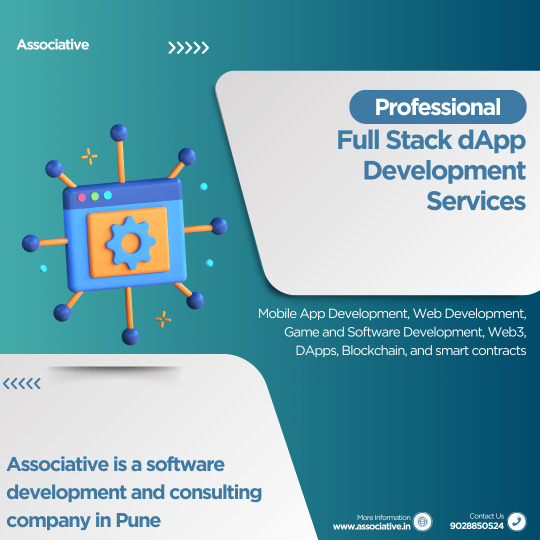
The world of decentralized applications (dApps) is exploding, offering businesses and users unparalleled levels of transparency, security, and user control. To navigate this rapidly evolving space, you need a partner with deep expertise in full-stack dApp development—and Associative is that partner.
Why Choose Associative for Full-Stack dApp Development?
Blockchain Mastery: Associative’s developers are well-versed in popular blockchain platforms like Ethereum, Solana, Hyperledger, and more. They understand the nuances of smart contract development, consensus mechanisms, and secure decentralized architecture.
Web3 Fluency: dApps demand seamless user interfaces that interact with the blockchain. Associative’s frontend expertise with technologies like React, Angular, and Vue.js ensures intuitive and engaging user experiences.
Robust Backend Development: The backend of your dApp must be scalable, reliable, and efficient. Associative’s backend engineers craft robust solutions using Node.js, Python, and other suitable technologies.
End-to-End Solutions: With Associative, you get a single team managing all aspects of your dApp project, eliminating the need to coordinate with multiple vendors.
Associative’s Full-Stack dApp Development Services
dApp Ideation & Consulting: Transform your initial concept into a well-defined dApp project plan with expert guidance on feasibility, technology choices, and market potential.
Smart Contract Development: Create secure, auditable, and transparent smart contracts that form the backbone of your dApp’s logic.
Frontend Development: Design user-friendly interfaces that adhere to Web3 best practices and connect seamlessly with your smart contracts.
Backend & API Development: Build a robust backend that handles data storage, user authentication, and communication with the blockchain.
Testing & Deployment: Ensure the security, reliability, and scalability of your dApp through rigorous testing and deployment on the appropriate blockchain networks.
Maintenance & Support: Receive ongoing support to keep your dApp running smoothly and evolving to meet your users’ needs.
Where Associative’s dApp Solutions Excel
Associative’s dApps are finding success across numerous sectors:
Finance (DeFi): Decentralized exchanges, lending platforms, and innovative financial instruments.
Supply Chain Management: Transparent tracking of goods and assets, ensuring provenance and combating fraud.
Gaming & NFTs: Provably fair games, marketplaces for digital collectibles, and new play-to-earn models.
Governance & Voting: Secure, transparent decision-making platforms for organizations and communities.
The Associative Difference: Building Trust in the Decentralized World
Associative understands that dApps thrive on trust. That’s why they prioritize security, code audits, and rigorous testing in every project. Their transparent development process ensures you remain informed and involved throughout your dApp’s journey.
Embark on Your dApp Journey with Associative
If you’re ready to leverage the power of decentralization, Associative is the ideal partner to guide your way. Contact them today to explore how their full-stack dApp development expertise can help you achieve your vision.
0 notes
Text
Dynamic Collaboration: Klaytn and Finschia Join Forces to Enhance the Blockchain Ecosystem
The blockchain landscape in Asia is set for a major transformation as Klaytn Foundation and Finschia Foundation propose an ambitious merger. This strategic move aims to unite Klaytn and Finschia blockchains into a single, unified mainnet, potentially creating Asia's largest Web3 ecosystem. With over 250 million digital wallets and a network hosting more than 420 decentralized applications (DApps), the merger seeks to redefine the blockchain space in the region.
The merged blockchain will support both Ethereum Virtual Machine (EVM) and CosmWasm, emphasizing the integration of technologies to enhance user experience and network capabilities. By connecting Web3 assets from LINE and Kakao's messaging platforms, the collaboration aims to extend its influence across Asia, capitalizing on the strengths of these leading technologies.
At the heart of this merger lies the transition to a new native coin. The foundations plan to move from KLAY and FNSA tokens to a fresh native coin, implementing innovative tokenomics. This approach includes a lower base inflation rate and a 3-layer burning model, fostering a stable economic environment within the blockchain. The burning model, especially the burning of a substantial portion of non-circulating KLAY, aligns with the concept of Zero Reserve Tokenomics, aiming to discourage inflation and enhance deflation with increased network activity.
Beyond the technical aspects, the merger envisions establishing a large decentralized Web3 governance structure in Asia. This governance model seeks to fortify network security and decentralization through permissionless validation. The foundations are eyeing expansion into new sectors like real-world asset (RWA) tokenization, GameFi, and DeFi, signaling an integration of traditional digital platforms with blockchain technology.
The Klaytn Community Town Hall, scheduled for January 19, 2024, will play a pivotal role in unveiling further details of this transformative proposal. Subsequently, the discussion and voting period from January 26 to February 2, 2024, will allow stakeholders to actively participate in shaping the future of this consolidated Web3 ecosystem.
#Klaytn#Finschia#blockchain merger#unified mainnet#Web3 ecosystem#digital wallets#decentralized applications#DApps#Ethereum Virtual Machine#CosmWasm#tokenomics#Zero Reserve Tokenomics#decentralized governance#cryptotale
0 notes
Text
#defi#crypto#bitcoin#litecoin#digitalcurrency#blockchain#digital assets#ltc#decentralised finance#btc#decentralizedfinance#decentralized#decentralized finance#decentralization#decentralized exchange#decentralized applications#decentralized autonomous golem reml#decentralized identity#cryptocurreny trading#cryptocurrencies#solana#cryptofuture#cryptoinvesting#yield farming#investment#altcoin#crypto news#crypto exchange#crypto currency#crypto analysis
0 notes
Text
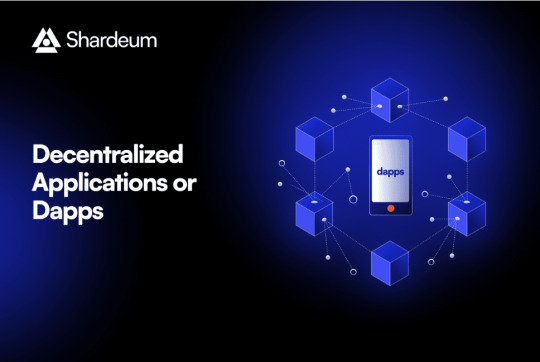
Decentralized application is open-source software that works on a peer-to-peer network as opposed to a single computer. Learn more about what are decentralized applications
0 notes
Text
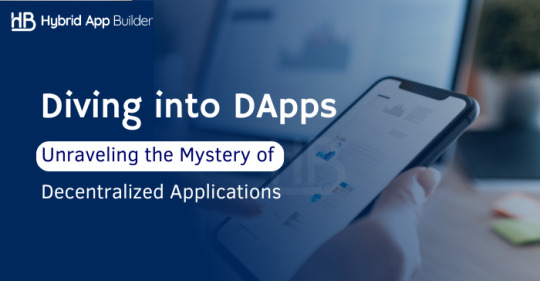
Dive into the world of Decentralized Applications (DApps) and unlock their secrets!
Join us as we unravel the mysteries and guide beginners through the fascinating realm of DApps.
0 notes
Text
How to Develop a Decentralized Application (DApps)?
Here we will guide to the intricate process of developing a dApp and how Digitalroar Softlabs, a leading dApp development company based in Dubai, can be your trusted companion on this journey.
0 notes
Text
is decentralization good ?
First of all, I've been working 24/7 lately to build a stable open-source decentralized ecosystem... so I support decentralization but lately I saw some other view points and they see decentralization as a bad thing, and I wanted to address them as they make sense somehow.
when you say decentralization, the first thing comes to people's mind is web3 and cryptocurrencies, but this is not our scope right now, we'll be talking about decentralized networks, databases, and apps.
illegal activities
Some argue that decentralized networks prioritize privacy to an extreme extent, making it challenging for authorities to detect and prevent illegal activities such as terrorism, child exploitation, drug trafficking, and more...
cyber threats
and some suggest that decentralized networks are more susceptible to cyber threats and attacks due to the distributed nature of data storage and communication.
What do I think ?
let's start from illegal activities, first of all, these activities are already being done on the dark web and web3, and I don't support both of them, so when I say we're building a decentralized ecosystem we won't see thousand criminals writing code to build a network for their drug trafficking activities, without saying that a lot of corrupted authorities are the ones managing it so... let's stay out of it :)
and when it comes to security, that's true, and it's the main purpose I started the ddeep ecosystem project. most decentralized networks are vulnerable and they lack stability... making it a hard choice for developers to go to.
Soon this won't be the case, in a paper published by Washington University in St. Louis in 2019, they talk about internet decentralized systems, well they mentioned IPFS, SSB, and BitTorrent, and we are now in 2023 and I think all these systems are not the right road to go if we want to build a free decentralized internet and we need to take things to another level.
After all, what about technologies like smart homes, internet of things, and social media... well these technologies should absolutely get decentralized, just think about it for a moment.!
thanks for reading. appreciate it!
0 notes
Text
Smart Contracts
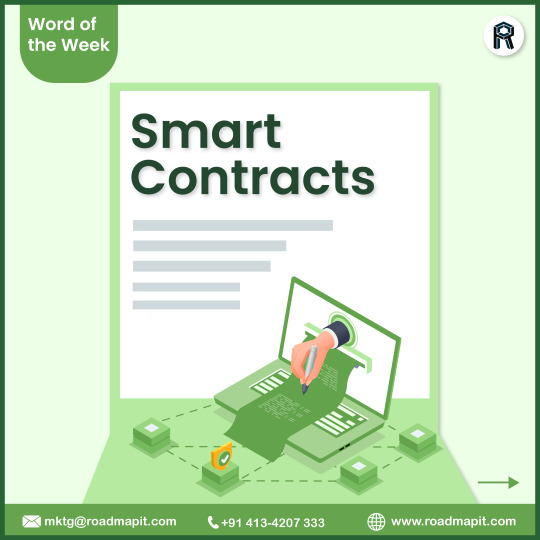
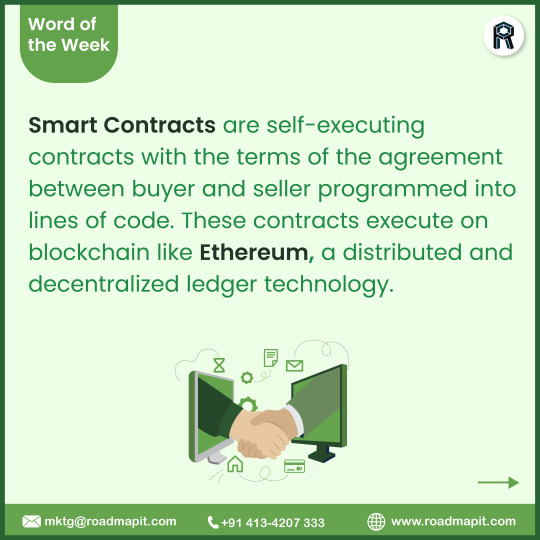
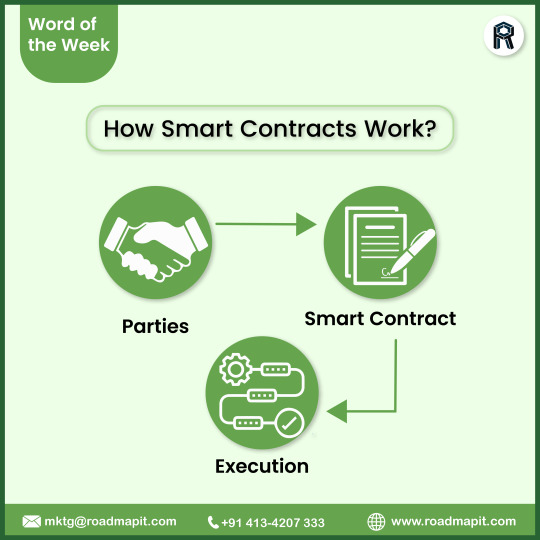
Smart contracts are written in programming languages like Solidity, which are self-executing pieces of computer code that can facilitate, verify, and enforce the performance of an agreement. But unlike regular computer programs, these digital smart contracts are trustless, autonomous, transparent, and immutable.
Smart contracts have the potential to revolutionize various industries by automating trust and contract execution securely and transparently. This makes them useful for many kinds of commercial and legal applications.
#SmartContracts#Ethereum#Blockchain#smartcontractsdevelopment
#smartcontracter#decentralizedapplications#dApps#blockchaintechnology#finance#crytocurrencies#agreement#automation#programmingcode#Solidity#Roadmapitsolutions#itservices#erpsoftware#erp#roadmaperp#wordoftheweek
#smartcontracts#smartcontracter#decentralized applications#automation#erpsoftware#roadmaperp#word of the week#it services
0 notes
Text
Understanding The Graph: How Does It Work?
Blockchain technology is altering the way we think about data storage and transactions in the digital world. The Graph stands out as a vital element that is essential to the operation of decentralized applications (DApps) among the many advances in this field. This article explores the concept of The Graph, shedding light on its inner workings and importance in the blockchain ecosystem.
What Is…
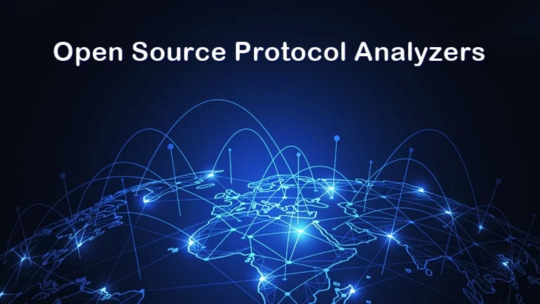
View On WordPress
0 notes
Text
What Is Cardano Blockchain?
Cardano is a blockchain platform that aims to provide a secure and scalable infrastructure for the development of decentralized applications (dApps) and the execution of smart contracts. It was founded by Charles Hoskinson, one of the co-founders of Ethereum, and his team at IOHK (Input Output Hong Kong).
Cardano is often referred to as a third-generation blockchain platform because it aims to…

View On WordPress
#ADA#Adoption#Blockchain#Cardano#dApps#decentralization#decentralized applications#Ethereum#IOHK#PoS#PoW
0 notes
Text
youtube
Cryptography and Blockchain
In the previous few episodes, we learned what is PGP encryption, and how the keys are generated for encryption and decryption. Today, we will see the real-world use case of where and how these keys are used in the blockchain. We will also learn the basics of cryptocurrency as well as some of the risks/threats. Cryptography and Blockchain video by Bhaumik Shah
#cryptography and blockchain#blockchain technology#cryptography types#cryptography in blockchain#properties of blockchain#difference between crypto and blockchain#digital ledger technology#blockchain vs cryptocurrency#public key cryptography#private key cryptography#digital signatures#distributed ledgers#consensus mechanisms#decentralized applications#quantum computing and cryptography#zero-knowledge proofs#encryption and decryption#cryptography#blockchain#Youtube
0 notes
Text
An examination of decentralized exchanges (DEXs) and how they've evolved trading from order book management to liquidity pools and aggregators.
Chandralok Tower,
Unit #403, 3rd Floor,
Kapoorthla, Aliganj,
Lucknow,
Uttar Pradesh 226020
0 notes